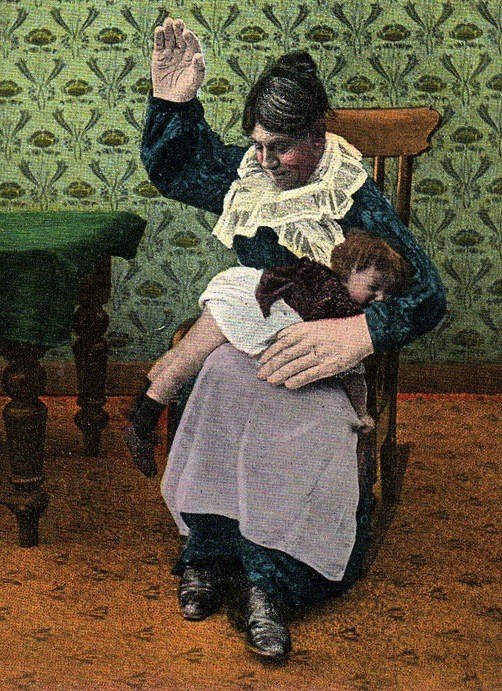Spanking May Encourage Misconduct

Spanking encourages children to misbehave, according to a new study.
New research on real-time audio recordings of parents punishing their children and found that spanking was significantly more common than parents admit.
Researchers discovered that parents often spanked kids for trivial misdeeds and children misbehaved 10 minutes after being punished.
While advocates of corporal punishment have outlined best practices for responsible spanking, that latest study reveals that parents often fail to follow the guidelines.
The study showed that parents weren't always calm when they punish their children, didn't use corporal punishment as the last resort and spanked for minor infractions and not just serious misbehavior.
"From the audio, we heard parents hitting their children for the most extraordinarily mundane offenses, typically violations of social conventions," lead researcher George Holden, a parenting and child development expert at Southern Methodist University in Dallas, said in a news release. "Also, corporal punishment wasn't being used as a last resort. On average, parents hit or spanked just half a minute after the conflict began."
The study revealed that parents who physically punished their children violated three of the six spanking guidelines: spank infrequently; use it only for serious misbehavior; and only as a last resort.
"The recordings show that most parents responded either impulsively or emotionally, rather than being intentional with their discipline," added Holden.
Researchers assessed audio recordings of parent and child interactions in 33 families over the course of four to six evenings. Parents had volunteered to wear the recorders. The study captured 41 instances of corporal punishment, mainly during everyday activities like cooking dinner and bathing children, and noncompliance was the immediate cause of 90 percent of the incidents. Children were punished for sucking fingers, eating improperly, getting out of a chair, and going outside without permission. Parents sounded angry prior spanking or hitting in 49 percent of the incidences, which took less than 30 seconds to escalate from nonviolent discipline to corporal punishment.
Researchers found that children misbehaved again within 10 minutes of being hit or spanked in 30 of the 41 incidents.
"The average rate we observed using the real-time audio equates to an alarming 18 times a week," added Holden.
"Although spanking advocates may acknowledge these incidents as inappropriate use of corporal punishment, evidence indicates that mothers who report their child gets spanked are also more likely to report physical abuse of that child," researchers wrote in the study.
The findings were published in the Journal of Family Psychology.
Apr 15, 2014 05:08 PM EDT




